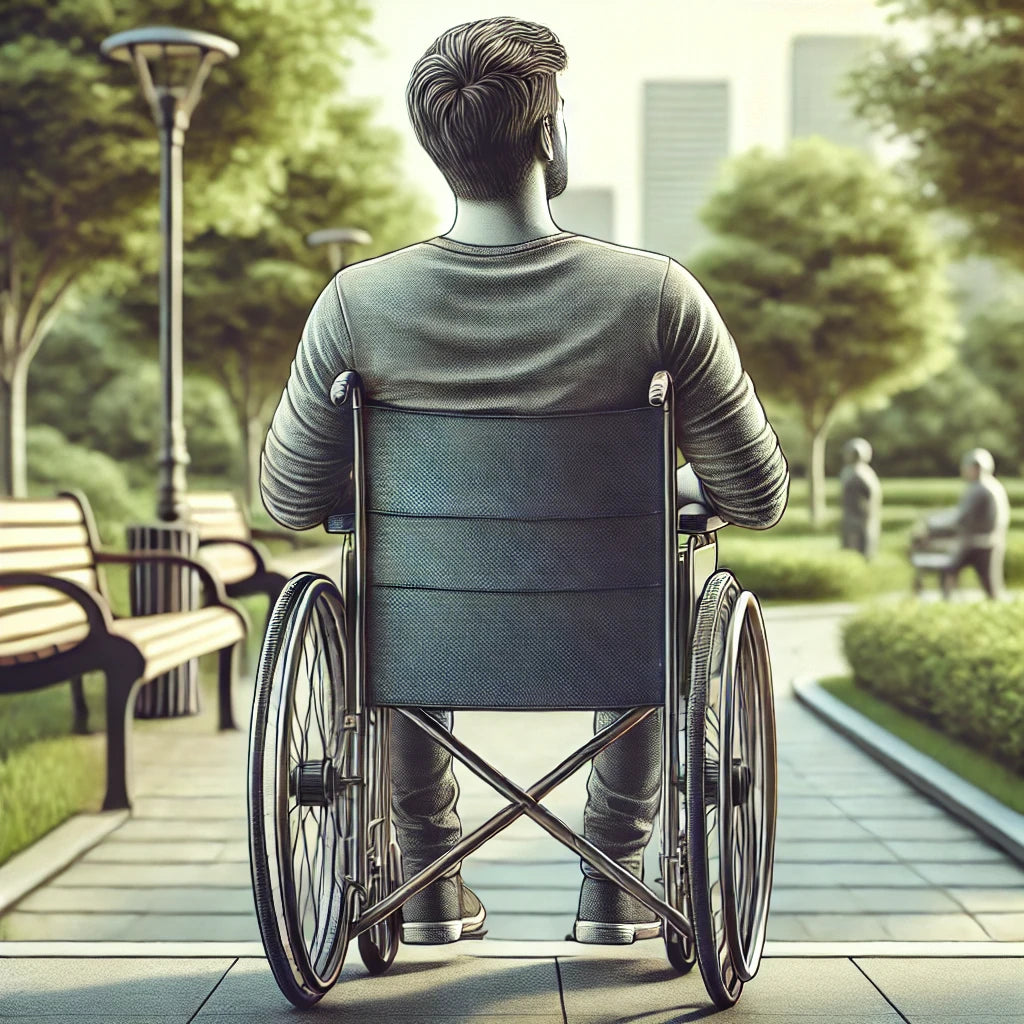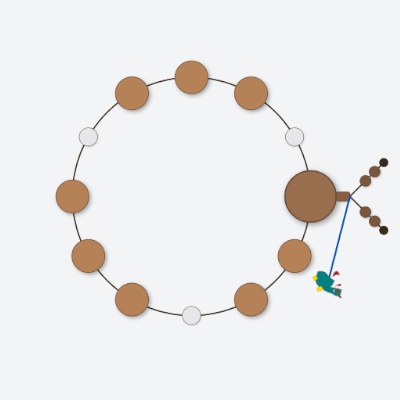Menu
-
-
F.A.Q
- How to identify genuine agarwood chip, natural or cultivated
- How to identify oil injection / absorption fake agarwood beads
- How to know if there are more than one oil in your oil
- How to make your wood bracelet or mala darker
- How to tell if an Agarwood bead sinks WITHOUT sinking it under water?
- How does back flow incense work and how do you burn it?
- Where to start if you don't know what agarwood is ?
- Why are you losing money if you buy seeds and plants?
- Which agarwood incense should I choose?
- Frequently Asked Questions
- Agarwood Related Articles
- Shipping
-
SHOP - Agarwood
-
SHOP - Other Fragrant Wood
-
SHOP - Incense Holder and Burner
-
- FREE Oud Oil guide
- Testimonials
- "Why did you buy this?"
- Contact us
- About Us
- +61430284329
- Login
-
English


A Saturday story
June 02, 2022 10 min read
A customer shared a story told by a Buddhist monk (Bhiksu). It was on a Saturday afternoon when many Buddhists gathered in a local temple. They decorated flowers on a table for the monk and some light refreshments for others. They burn some agarwood incense for the Dharma talk.
The incense aroma created a warm comfortable atmosphere. Many Buddhists sat close to each other, all eyes on the Bhiksu, who was sharing a truly inspiring story.
It started with the poor girl who was looking for a job.
She was born into a poor family. Her parents passed away when she was little. So she became a house sitter and lived with her relative. Her relative only let her stay at their place and provide food but did not support her financially. Besides doing household chores, she had to work in a local eatery while studying to support herself. But she could not last long because of the low pay and late hours. So she kept looking.
One day, she saw a job advertisement in the local newspaper. The ad said:
"Looking for a caretaker - above-average payment".
She called the number listed on the ad, and she was told to come to care for a disabled young man.
The man who lost his legs
This young man was a son of a wealthy family. He was intelligent and talented. He studied and played the guitar well. But he was not happy.
His parent argued all the time. He rarely saw his parents, who gave him a large sum of the weekly allowance. His parents did not spend a lot of time with him, although he was the only son.
One day, he got bored. His friend called him out for a drink. Then they went for a drive and turned into a high-speed race. He was unconscious at the scene. A pedestrian called the ambulance and sent him to the hospital.
When he woke up, he learnt that he had lost both of his legs.
He felt like his life was over. He was angry and resentful at his parents for not being there for him and at his friend for getting him into the accident. He felt like he had nothing to live for.
After the accident, he became miserable and self-destructive. He is only 20+ years old, and he could not move freely. He felt like there was no tomorrow, and there was only one thing remaining in his life: pain. He constantly thought of ending his life.
His parents had been hiring many different caretakers, but no one could last a week. As he could only sit and lie on the bed, his parents gave him a money box that he used to entertain himself. Whenever a new caretaker came, the man wanted to see the caretaker's reaction. He asked the caretaker could buy him some rat poison so he could end his life. Some did not listen to his instruction and talked about something else, redirecting the conversation, and some would comfort him. Others did not know what to do. After a while, seeing it was too difficult to change his mind as he talked about death and suicide all the time, most caretakers quit. There had been 12 applicants, and all of them had left.
She accepted the job.
When the young man's parents called the young girl to come and care for him, she learnt that she was the thirteenth applicant. She knew the caretaker job would be highly challenging, but she needed money, so she accepted the job offer and started the next day.
In the morning, she came to the young man's house. The young man's parents gave her daily money to cover the caring expense on top of her daily wage. Then they left the house and went to work. She used the fund and ordered breakfast for him. It was a beef noodle soup.
She placed his meal on the table and told him breakfast was ready.
The young man told her to carry him to the table so he could eat. The girl thought he was just lazy, so she replied:
"I know you are sick, but there are only a few steps to the table; why don't you get out of bed and walk to the table yourself?"
However, the girl still came and helped him get up. When she lifted his blanket, she saw he had no leg. Immediately, she regretted what she said and apologised to the man.
"How could you eat...?"
When he was having his breakfast, the girl had her too. The man looked at her breakfast and asked what she was having.
"Breakfast for the poor, boiled sweet potato, you will not like it". The girl replied
The young man said
"How could you eat those things? It does not look good, but…can I try?"
Hesitantly the girl gave some of the boiled sweet potatoes to him.
He tried a piece of her boiled sweet potato, and he was delighted.
To her surprise, the young man said
"It was so good; this is the first time I ate something like this"
"I will bring more tomorrow for you if you want."
The young man felt happy, and he tipped the girl 5-hour of wage, but she refused. She said
"Your parents have already paid me to work for 5 hours; I cannot accept more than I am entitled to."
The young man thought highly about this girl. She was different to other caretakers, who usually accepted the extra tips he gave. Later on, he also found that she would not leave early either. She would clean up his room and the living areas if she had some spare time, although the man's parents did not ask her to.
On the second day, they had boiled potatoes for breakfast. While having breakfast, the young man asked the girl why she had applied for this job. She told him that her parents passed away on the way home because an illegal racing bike hit them.
Since then, she stayed and did housework for her relatives and worked to support herself. The girl also told him that her dream was to be a journalist. After hearing her story, the young man flinched; he confessed to the girl he had lost his legs because of illegal racing. Although he did not directly cause her parents' accident, illegal racers like him destroyed many families' lives, including his own. He felt remorseful. The girl just listened, and she did not say much.
After that day, the young man and the girl became good friends. Every morning they would have breakfast together and talk.
The next day, she brought him a bamboo wind chime and hung it in the window. The young man told her that he only listened to rock and loud music, and at first, he disregarded the wind chime.
The girl explained that wind chimes were among the oldest and most popular types of garden decorations. They were easy to make and could be hung from almost anywhere. The metal part will hit the bamboo, and it would make the chime sound when the wind blew through the wind chime. The sound was beautiful, and it made the invisible wind feelable and bearable. Gradually, day by day, the young man felt connected with nature. He listened to the sound and felt better. He even got his guitar and played, which he had neglected for a long time. His parents were happy to learn that. Seeing him change positively, his parents spent more time with him. They talked to him more and encouraged him to look ahead.
Why do we live?
One morning, when the girl pushed his wheelchair outdoor, the young man asked the girl:
"Why do we live?"
"We live to love and to rise. You used to be a racer, right? Do you want to race with me?"
"Race? Are you kidding? I got no leg; how do I race with you?"
"Not physically, but spiritually. You can't race physically but mentally. You still can love and show your love, you are helpful to society, and you can still help people; you just need to figure out how. Let's race to see who can do that first."
The young man paused momentarily; then he accepted the girl's challenge.
That night, the young man could not sleep well. He woke up very early morning to prepare a box for the caretaker.
The next day, when the girl arrived at the young man's house. A person was waiting at the gate and handed her a box that the young man had made. That person said
"The young boss had left in the morning with his parents. He told me to let you know you did not have to come to care for him again. He asked me to give you this box."
The girl was surprised, and she brought the box home.
When she opened the box in her room at home, she saw many paper cranes. Actually, they were not paper cranes but "money cranes". In the centre of the box surrounded by "money cranes", there was a letter. It read
"Dear my caretaker
You do not need to come to care for me again. I accepted your challenge: I will race with you to see who could be helpful to society first. Please accept my offer 1000 of paper cranes.
I know you will return them to me, but please do NOT do that. Please consider this as a gift from me to you which you can use to pay your tuition fee. So it is fair for me to race with you.
Please do not feel bad and I used to burn this amount of cash in three hours for useless things. I had wasted years of my life and much more money than you could imagine. I am grateful that I met you. I am going to live my life again. Let's see each other one day when we reach our goals.
You can only do that when you have money and time to study. You cannot race with me if you continue to care for me.
The good news is I can take care of my own. My parents got me a carer because I did not want to do anything, including taking care of myself. But thanks to you, I do not want to live the way I am living now. Your words has moved me. You have woken me up, and I want to live a meaningful life again.
So please accept my gift, and do not return to this place. We are not home for you to return the money."
The girl was touched by the letter and determined to make a difference to her life. She used the "money crane" to enrol in college in the city. She also moved out of her relative place and started a new life. The young man also moved to a different city to further his study.
Life went on, and they lost contact (this happened before the age of social media and smartphones).
Many years later, the young girl graduated and became a journalist.
Interview.
One day, she was assigned to interview the company founder, whose company specialises in software development for visually impaired people. For example, VoiceOver is an app that allows users to control a computer. His company also developed another program for an electronic wheelchair. This program will enable users to command the wheelchair to go up and down at different heights to let users use the bathroom at ease.
The journalist asked the software founder what inspires him to do what he is doing. He pointed to his prosthetic legs and said
"When I was young, I lost my legs in an accident due to an illegal race that I participated in it. I understand that hardship of many disabled people is experiencing. I got my prosthetic legs from a specialist who was my mentor. I believe there are many people like me, so I want to help them."
The journalist was surprised and said,
"Can I ask you a personal question? How did you become successful despite your limitations?"
The software founder said
"Also, when I was young, I promised my caretaker that I would do something useful that benefits the society."
"A promise to your caretaker?" the journalist asked.
"Yes, we promised that both of us would live a meaningful life back then."
The journalist was stunned when she listened to his answer. His childhood story was "too" familiar.
She got many questions for him, but she held back until the interview was completed.
When all cameras were off, the journalist wrote an address on a piece of paper and asked if the software founder had recognised it.
"That was where I used to live. But how... how did you know?" the founder asked astoundingly.
"I was your caretaker." said the journalist.
It was an emotional moment. Then they revisited old memories.
The journalist told him that she remembered everything.
The software founder said,
"I'm glad you remember. I'm glad we could keep our promises."
The two of them had accomplished their dreams, and they were finally able to meet again and reminisce about the past.
After a while, the founder said
"Although it was an accident, I was grateful for it. My parents got back together, and they spent more time with me. During that time, they appreciated each other. As a result, they listened to each other more, and their relationship improved.
Thank the accident; I met you. You were the one who helped me realise the meaning of life, so I rose back and walked again."
"Thank you for your tuition fee back then, and I used it to study journalism. Now I have been interviewing successful people to inspire others. It was great to meet you again."
Gradually they fell in love and got married.
Why am I sharing with you this?
It is an inspiring story, showing that hardship is a gift. Hardship drives us to reach our goals.
The story also reminds me to appreciate what I have, no matter how small it is.
Without sleepless nights, I do not appreciate the nights I sleep well.
Without bad days, I do not appreciate good days.
The young man's perseverance inspires me. His life was up and down, but finally, he made it to the end. He changed his life and many people with the help of his carer who he falls in love with.
Just like Agarwood
Without "hardship", there is whitewood. It was the "hardship" that makes Agarwood valuable. Keep fighting and one day, you will become a human "Agarwood" too. You are "hardened" up, just like Agarwood, mentally and physically.
Leave a comment
Comments will be approved before showing up.


